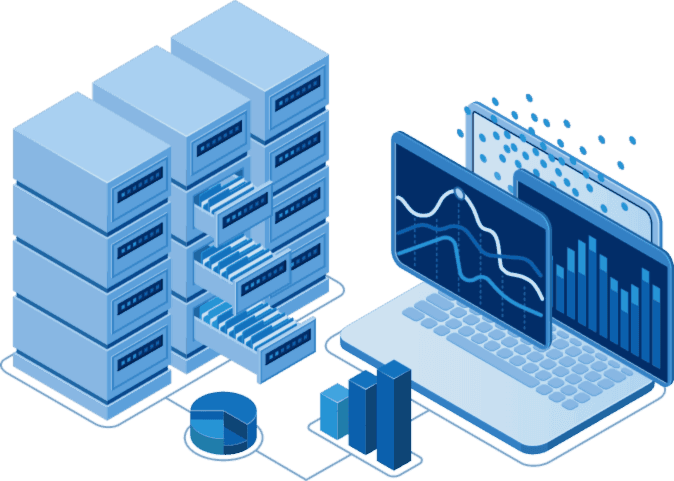How to Become EDI Capable + A Case Study

LIKE.TG 成立于2020年,总部位于马来西亚,是首家汇集全球互联网产品,提供一站式软件产品解决方案的综合性品牌。唯一官方网站:www.like.tg
As businesses have embraced the digital age, the nature of communication has fundamentally shifted. No longer confined to the limitations of verbal or written messages, complex data interchange systems characterize modern communication.
Amid this transformation, Electronic Data Interchange (EDI) has emerged as a pivotal means for businesses to exchange information efficiently and accurately. But simply adopting EDI isn’t enough; to leverage its full potential, companies need to become ‘EDI capable.’
Essential Components of EDI Capability
Being EDI capable means cultivating a holistic and sophisticated understanding of how EDI works, how it can be leveraged, and how it can be tailored to unique business needs. Below is a more detailed breakdown of the crucial elements that constitute true EDI capability:
Understanding and Complying with EDI Standards
Attaining EDI capability involves a thorough understanding and adherence to the myriad of EDI standards that are recognized globally. However, this comprehension goes beyond simply knowing all of the technical specifications.
EDI capability refers to the company’s ability to fluidly navigate and adapt to these standards, including American National Standards Institute (ANSI) X12, Electronic Data Interchange for Administration, Commerce and Transport (EDIFACT), Trading Data Communications Standard (TRADACOMS), and others. EDI standards vary based on specific industry needs, geographical locations, and partner requirements.
EDI standards essentially function as languages for business data interchange, each with its unique syntax and structure. Becoming EDI capable entails not just ‘speaking’ these languages proficiently but also understanding their nuances and adjusting the business’s specific communication style to interact with a range of trading partners.
Moreover, it involves staying updated with any revisions, updates, or new standards emerging in the market. An EDI capable business is always ready to incorporate changes swiftly to maintain seamless communication channels.
Building a Robust EDI Infrastructure
Another defining characteristic of EDI capability is having a robust and scalable EDI infrastructure. The strength and stability of this infrastructure is used for handling the present volume of EDI transactions but should also be future-proof.
In the context of EDI capability, a robust infrastructure means being able to handle a wide array of transaction types, from purchase orders to invoices to complex healthcare claims and more. The system should be able to handle peak volumes during high-activity business periods, ensuring uninterrupted data flow.
Scalability plays a critical role here. As the business expands, so do its data exchange needs. An EDI capable business must have an infrastructure that can scale up (or down) as needed, ensuring consistent performance regardless of the volume of transactions.
Achieving Seamless System Integration
The degree of integration between the EDI system and a business’s existing systems also shapes the extent of its EDI capability. A business becomes more EDI capable as it integrates EDI with its other critical systems, such as Enterprise Resource Planning (ERP), Customer Relationship Management (CRM), and Supply Chain Management (SCM) systems.
Enabling Effective Partner Collaboration
Finally, being EDI capable means businesses can collaborate effectively with many trading partners. Each partner a business interacts with will have their own set of EDI standards and protocols that they adhere to.
EDI capability includes the ability to cater to this diversity, enabling seamless and efficient data exchange regardless of the partner’s requirements. This might involve using different EDI versions, transmission methods, or EDI standards.
In essence, being EDI capable is a testament to a business’s ability to forge strong, efficient, and flexible communication channels with its trading partners, thereby strengthening its position in the market.
Benefits of Becoming EDI capable
The benefits of becoming EDI capable go far beyond simply facilitating electronic data exchange—they impact the core of a business’s operations, efficiency, and strategic growth.
Streamlined Operations
With EDI, the data exchange process is automated, eliminating time-consuming manual data entry. In addition to enhancing operational speed and efficiency, this practice substantially mitigates the risk of human error. As a result, businesses can save significant time and resources, enabling staff to dedicate their attention to other strategic responsibilities.
Enhanced Decision-Making
Being EDI capable facilitates seamless integration with a business’s existing systems, such as ERP, CRM, and SCM. This deep level of integration ensures real-time availability of data, enhancing the decision-making process. Stakeholders can base their strategies and decisions on the latest and most accurate data.
Boosted Business Opportunities
By demonstrating a higher level of compatibility with various EDI standards and protocols, businesses can appeal to a wider range of potential trading partners. This adaptability smooths out data exchange processes and simultaneously opens new avenues for business expansion.
In essence, being EDI capable can lead to increased business opportunities since meeting diverse partner requirements can attract more collaborations.
Robust Security
According to IBM, the cost associated with data breaches can range between $129 and $355 per record. EDI software mitigates such risks by allowing only authorized access to your company’s information.
Additionally, EDI systems offer archive tracking and audit trail capabilities, enabling you to closely monitor all activity. This not only ensures secure data exchange, but it also enhances transparency with business associates. With EDI software, data integrity is ensured during its journey and storage, thereby preserving the originality of your transactions.
Case Study: Children’s Community Health Plan
Consider the case of a non-profit HMO, Children’s Community Health Plan (CCHP), that achieved EDI capability. Initially plagued by a tedious manual process for EDI file correction, CCHP implemented LIKE.TG EDIConnect.
Upon automating its EDI process, CCHP significantly cut down the time and effort required to correct transaction documents, reducing error rates and ensuring higher data accuracy. This resulted in savings of $26,000 annually. CCHP further saved $65,000 by forgoing the hiring of a new data analyst. The more accurate EDI data led to approval rates reaching 99% and secured over $100,000 in reimbursements.
Furthermore, this increase in data precision bolstered CCHP’s standing as a Medicaid-certified vendor, subsequently driving up their state revenue. The surge in their accepted claims reinforced their credibility as a dependable, preferred vendor, ultimately improving their financial performance.
Thus, becoming EDI capable allowed CCHP to significantly enhance operations and cost-efficiency while focusing more on providing quality healthcare.
Conclusion
As the world continues to digitize, efficiently and accurately exchanging data will only become more critical. Therefore, businesses must invest in becoming EDI capable and leveraging this capability for their growth and success. By doing so, they can unlock significant benefits such as streamlined operations, enhanced decision-making based on real-time data, improved partner relationships, and robust security, all leading to tangible growth and success.
At LIKE.TG, we are committed to helping businesses navigate their EDI journey. For businesses aiming to harness the power of EDI and achieve true EDI capability, LIKE.TG can provide the necessary support.

现在关注【LIKE.TG出海指南频道】、【LIKE.TG生态链-全球资源互联社区】,即可免费领取【WhatsApp、LINE、Telegram、Twitter、ZALO云控】等获客工具试用、【住宅IP、号段筛选】等免费资源,机会难得,快来解锁更多资源,助力您的业务飞速成长!点击【联系客服】
本文由LIKE.TG编辑部转载自互联网并编辑,如有侵权影响,请联系官方客服,将为您妥善处理。
This article is republished from public internet and edited by the LIKE.TG editorial department. If there is any infringement, please contact our official customer service for proper handling.
















